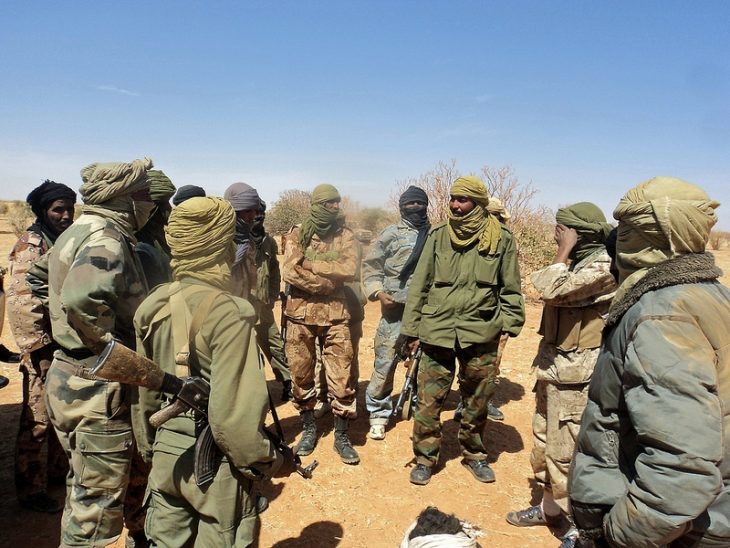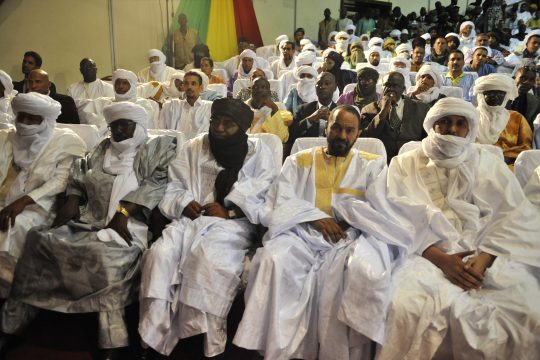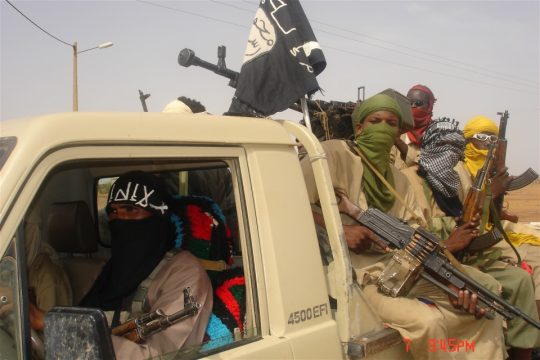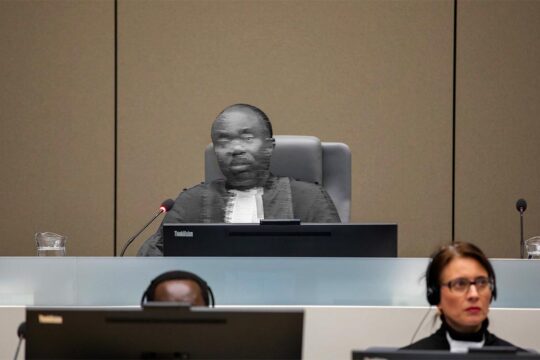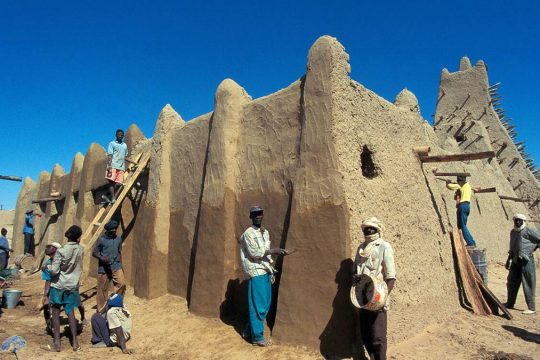Two months after a peace accord for northern Mali was signed amid fanfare, the deal is looking extremely fragile. The Coordination of Azawad Movements (CMA), a coalition of Touareg and Arab rebels which is a key player, has just pulled out of the peace accord’s monitoring committee. The CMA announced its decision at a meeting on Sunday in Bamako with representatives of the international mediation led by Algeria. Even if the CMA has only announced a suspension, this raises fears of new violence spreading in northern Mali. The rebel coalition’s decision is in protest at being driven from the town of Anefis in recent fighting with militia of the “Plateforme”, a term that in Mali designates armed groups supporting the government in Bamako.
These bloody clashes lasted three days, with the number of casualties so far difficult to establish. They started on August 17 in the region of Anefis, some 100 kilometres from Kidal, where the CMA has its headquarters.
In a communiqué the same day, the United Nations Multidimensional Stabilization Mission in Mali (MINUSMA) said it “condemns in the strongest terms these acts committed in flagrant violation of the Cease-fire Agreement and the Peace and National Reconciliation Agreement for Mali”. The Mission urged “the parties currently engaged in hostilities on the ground to immediately cease fighting” and to return to the positions they held before August 15. To prevent the fighting spreading, the UN Mission announced it was establishing a 20 km security zone around the town of Kidal, to come into effect from August 18. Whilst announcing investigations into the ceasefire violations to establish responsibilities, MINUSMA also sent a warning to the Plateforme. “In case of a violation of the security zone by elements of the Plateforme or affiliated with the Plateforme, MINUSMA will react accordingly, in conformity with its mandate,” it said.
“No conceding positions to the CMA”
The CMA says this is not enough. “We are demanding withdrawal from all the positions occupied, in flagrant violation of the security arrangements and peace accords,” CMA spokesman Almou Ag Mohamed told Sahelien.com, a leading website on the Sahel region. He then added in an interview with Studio Tamani that “as long as there is no proper settlement of the current situation on the ground that is considered fair and balanced by the guarantors of the peace accord and the mediators, we cannot continue to act as if nothing had happened”.
So what might the CMA do if the Plateforme does not withdraw from its new positions? The response comes this time from Cheik Ag Awssa, head of military operations of the High Council for Azawad Unity (HCUA). “The CMA is waiting to see what the guarantors of the peace accord will do,” he said in an interview with Sahelien.com, “and then we will decide what we will do.”
Such declarations do not seem to impress the Plateforme. “We are not against things that can move us forward, but there is no question of ceding our positions to the CMA,” Fahad Ag Almahmoud, general secretary of the Imghad and Allied Touareg Self-Defence Movement (GATIA, a member of the Plateforme) told Sahelien.com.
And what is the role of the Malian army in all this? Is it present, as some say, in the areas newly conquered by the Plateforme? “The army is not in Anefis,” a Ministry of Defence spokesman told Sahelien.com.
Following long months of negotiations led by Algeria, the “peace and reconciliation agreement” was signed on May 15 by the Malian government and then by the CMA on June 20. It aims to restore lasting peace to northern Mali, a region that has seen several Touareg rebellions since independence from France in 1960. The Touareg rebels benefitted briefly from an alliance with Islamist groups who then then evicted them to become masters of the region. The Jihadists were weakened and dispersed in early 2013 by an international military intervention but some areas still remain outside Bamako’s control.




